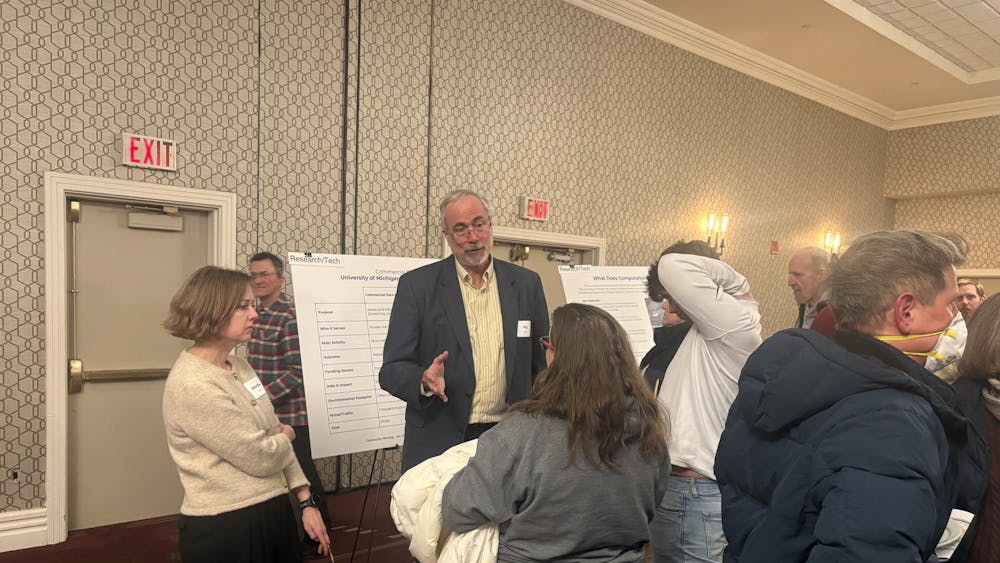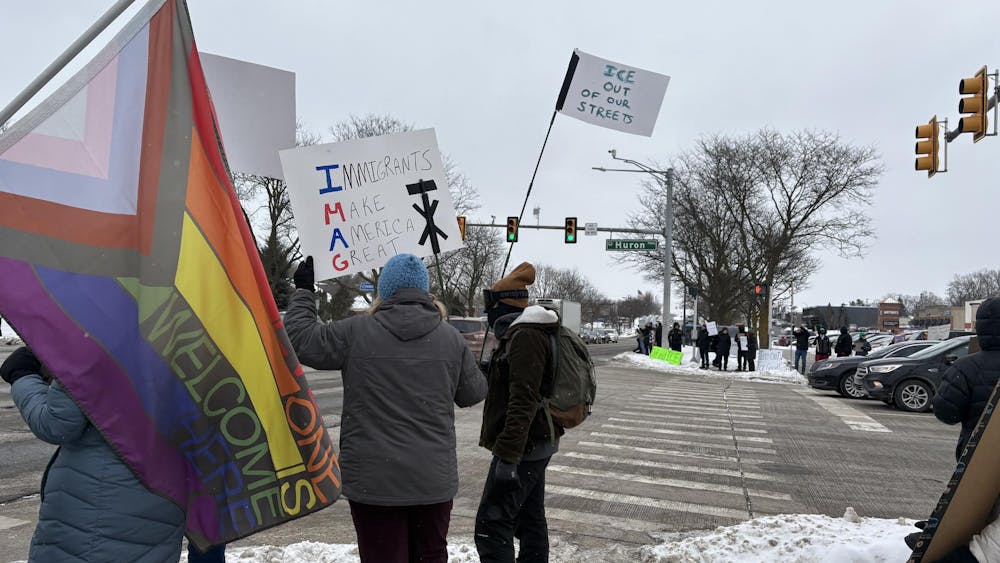Eastern Michigan University’s mock trial team will be participating in the opening rounds of the semi-finals next weekend in Cincinnati, Ohio. The program takes students from colleges around the country and puts them through the real legal procedures of a court case.
EMU is one of more than 600 teams nationwide in the program, said political science professor Barry Pyle, who coaches EMU’s team.
Pyle said EMU has a seriously well-qualified and talented group.
“[They] can quite literally compete to be the national champions,” he said. “We have a group of seniors; many of whom have done it for three, four or even two years. They are seasoned veterans who have won competitions around the country against the best universities in the country, and they stand a very high probability of winning an actual national championship against the other 500 plus teams … I also have key attorneys who have won more top ten attorney awards than probably anyone else in the country, as a collective.”
The American Mock Trial Association is an intercollegiate legal case tournament that began in the mid-1980s with six teams in Iowa.
EMU got involved 10 years ago when a student approached Pyle and said one of her friends at another college was involved in a mock trial program. She asked if EMU could join. Pyle agreed, and EMU became involved.
The university, with the support of EMU President Susan Martin and Provost Kim Schatzel, funds the mock trial team.
According to www.collegemocktrial.com, the AMTA ranges from Ivy League schools like Harvard to state schools like EMU, as well as community colleges.
At the beginning of August, each team is given a 200-page case, which includes the evidence, witness statements, photographs, mathematical equations and any other materials that would be used in a typical trial.
Students take notes, convert them into legal arguments and argue them against the other team.
The teams work on the case about 20 hours a week, and compete with other schools during the weekends. EMU travels seven to nine weekends a year to compete with other colleges.
“It teaches you the basics of criminal and civil law by actually working through hands-on, individual cases,” Pyle said. “One year it’s a criminal case, one year it’s a civil case. You’re forced to think on your feet … to adapt what you’ve learned in a very hands-on environment without sending someone to prison for life because you screwed up.”
This is the first year on the team for junior Nino Monea, who decided to join after he watched a mock trial tournament hosted at EMU last year. Once he got to see it, Monea was hooked.
“It was really, really cool to see not only how well done everything was, how prowess the presentations were, how slick the arguments were, but I saw multiple rounds,” he said. “And seeing different teams take on the same case, so the same fact pattern, but you can take on different elements of the case, call different witnesses, emphasis different points. And I knew the second I saw that I was going to join the team next year.”
The AMTA puts the students in a crash course of federal rules of evidence, substantive law, trial advocacy techniques, how to present a case, how to examine a witness and how to cross-examine a witness, all in a competitive environment.
The AMTA uses a smaller version of the federal rules of evidence. Monea said when he first read them, it was like reading Latin; he didn’t understand a word.
“It’s one thing to talk about that and lecture on that and explain this is what the rules of evidence mean, this is how they work,” Monea said. “But to actually get to use them, no notes, and argue in front of a judge against another attorney is like trying to learn a language between textbook versus emersion. There’s no comparison.”
Two judges are in every round with a ballot of 14 elements on it. Each is given a score between one and 10. Witnesses are also scored for direct and cross-examination.
Monea also said he discovered the experience is very different from TV.
“A lot of the time, if you look on a TV or movie, it’s a very quick process,” he said. “A lot of times it seems like they just walk into the courtroom without doing any research and just trap the witness.
But in reality, for the few minutes I’m up there, talking to the witness, I’ve spent many hours reading the case, reading the materials, reading his statements, analyzing and looking through them. So there’s a lot more preparation and formal steps that has to be gone through than you would see only in media.”
Pyle said anyone at the university could join the program.
“I’ve had students from business, psychology, chemistry, nursing, across the university,” he said. “Unfortunately, or fortunately, depending on how you look at it, most of the students I’ve had are political science students or history students. You have to be an undergraduate who has either graduated in the last six months or is currently enrolled at the school.”
Students interested in joining the mock trial team should contact Pyle at barry.pyle@emich.edu.









